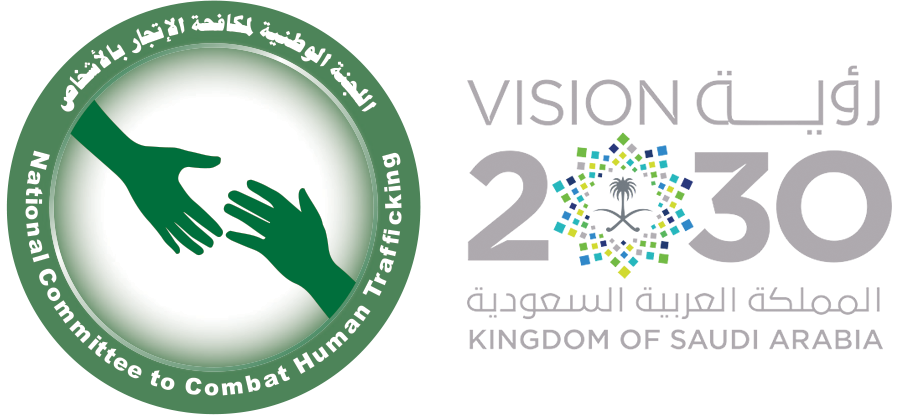The 4 P's of Anti-Trafficking
The 4 P's of anti-trafficking provide a basis for the Kingdom’s response in line with international best practice. They include:
Prevention: includes mitigating risks and actually preventing trafficking cases by spreading awareness, ensuring compliance to trafficking laws and labor regulations and reaching out to potential victims to ensure they know their rights
Protection: centers on identifying victims and referring them to protective, psychological, and legal services. It also includes the support and reintegration of survivors into society in a way that ensures they do not fall victim to trafficking again.
Prosecution: focuses on identifying the perpetrators responsible for committing this crime and bringing them to justice. It includes all steps from criminal investigation by specialized anti-trafficking law enforcement at the Ministry of Interior, charges by the Public Prosecution and its trafficking-specific sub-units, and trial by a specialized trafficking court which sentences perpetrators under the Kingdom’s Anti-Trafficking-in-Persons Law. The penalties for trafficking in the Kingdom include up to 15 years’ imprisonment and/or a fine of 1 million Saudi Riyals.
Partnerships: on both local and international level, are essential for tackling trafficking which is an inherently complex and often transnational crime. Partnerships help ensure victims receive wide-ranging support and perpetrators are not able to exploit geographical or national boundaries to avoid punishment.
The Kingdom’s major achievements from 2020-2021 include the following:
Prevention
- Launching the Labor Reform Initiative (LRI)
- Building capacity and training of public, private, & civil society sectors of more than 3,000 people
- Organizing round-tables with key labor-sending countries
- Developing and coordinating the National Action Plan 2021-23
- Intensifying awareness-raising campaigns
- Launching the NCCHT Twitter accounts
- Reviewing policies and suggesting reforms
- Implementing COVID-related measures for protection of workers
- Further developing Wages Protection System and e-contracts
- Sending labor attachés to enhance coordination with key labor-sending countries
Protection
- Launching an electronic complaint service on MUSANED
- Establishing the HRC's call center
- Establishing the NRM National Team
- Updating the Kulna Amn app with a TIP section
- Developing data collection tools
- Launching the Anti-Trafficking National Team across all regions
- Activating the National Referral Mechanism through the National Team
- Issuing new regulations for advertising transfer of services for expatriate workers
Prosecution
- Maintaining trafficking-specific circuits, at the PPO and courts
- Launching the Unified Translation Center and Najiz E-Justice portal
Partnerships
- Enhancing Partnerships with the International Organization Migration (IOM), and the UN Office on Drugs and Crime (UNODC)
- Signing MoUs between HRC and NGOs including the National Committee of Workers Committees
- Organizing round-tables with key labor-sending countries
- Incorporating the Ministry of Health and Ministry of Education into the National Committee to Combat Human Trafficking


